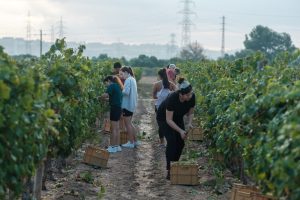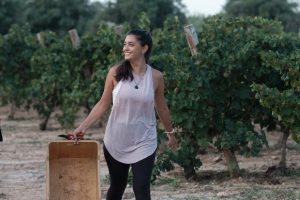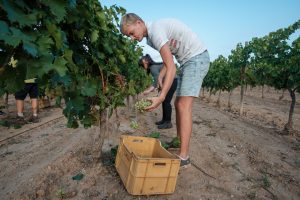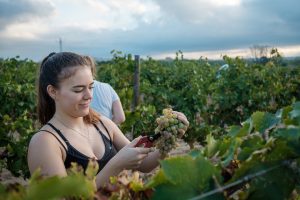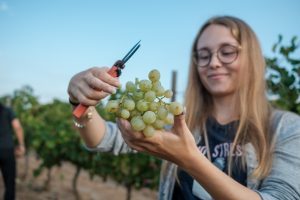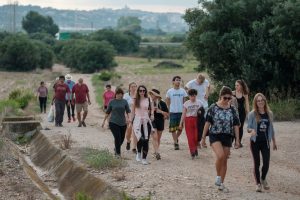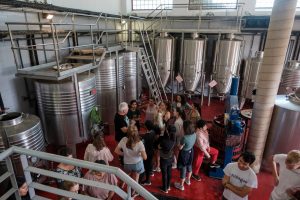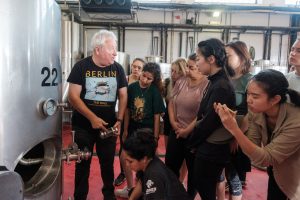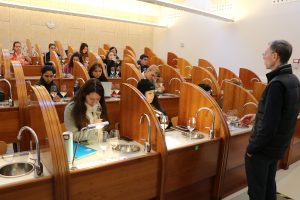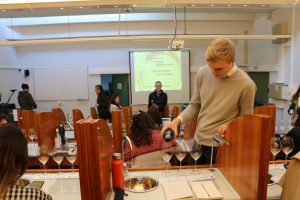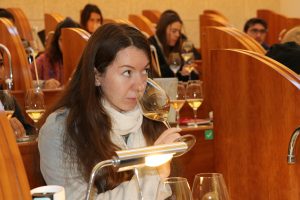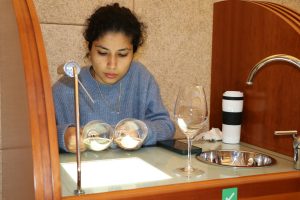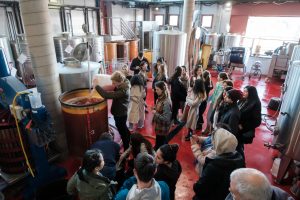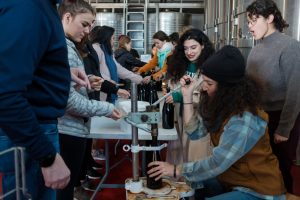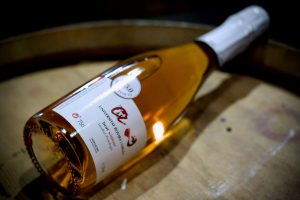10/01/2023
The URV has trained specialists in wine tourism from 44 nationalities
Students on the International Master's Degree in Wine Tourism Innovation are trained in wine tourism and marketing, wine production and cultural heritage to enhance the development of wine tourism. They are now on their way to Bordeaux and Porto after their stay at the URV
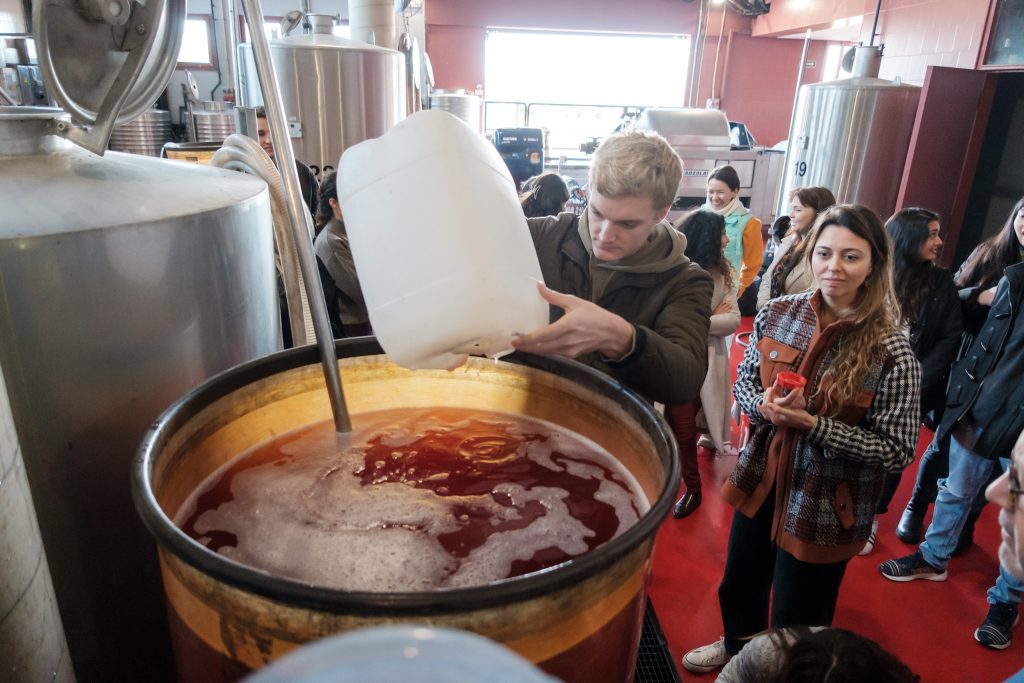
Students on the International Master's Degree in Wine Tourism Innovation are trained in wine tourism and marketing, wine production and cultural heritage to enhance the development of wine tourism. They are now on their way to Bordeaux and Porto after their stay at the URV
Up to 175 students of 44 different nationalities have been trained on the International Master’s Degree in Wine Tourism Innovation (Wintour) and are contributing to innovations in the development of wine tourism. Today, the seventh intake of students completed their last session at the Universitat Rovira i Virgili, which coordinates the master’s degree, and are about to set off for the University of Bordeaux (France) and the University of Porto (Portugal).
They have been working in the experimental cellar of Mas dels Frares, the estate managed by the Faculty of Oenology, to prepare the sparkling wine that they will uncork on the day of their graduation. They harvested the grapes themselves in September and today they added yeast to the base wine already in the bottle to initiate the second fermentation. The wine will then be allowed to age until June 2024. During this time, they will finish the course, which receives nearly 300 applications every year. Only 25 students can be accepted and most of these have an Erasmus Mundus scholarship, awarded by the European Union.
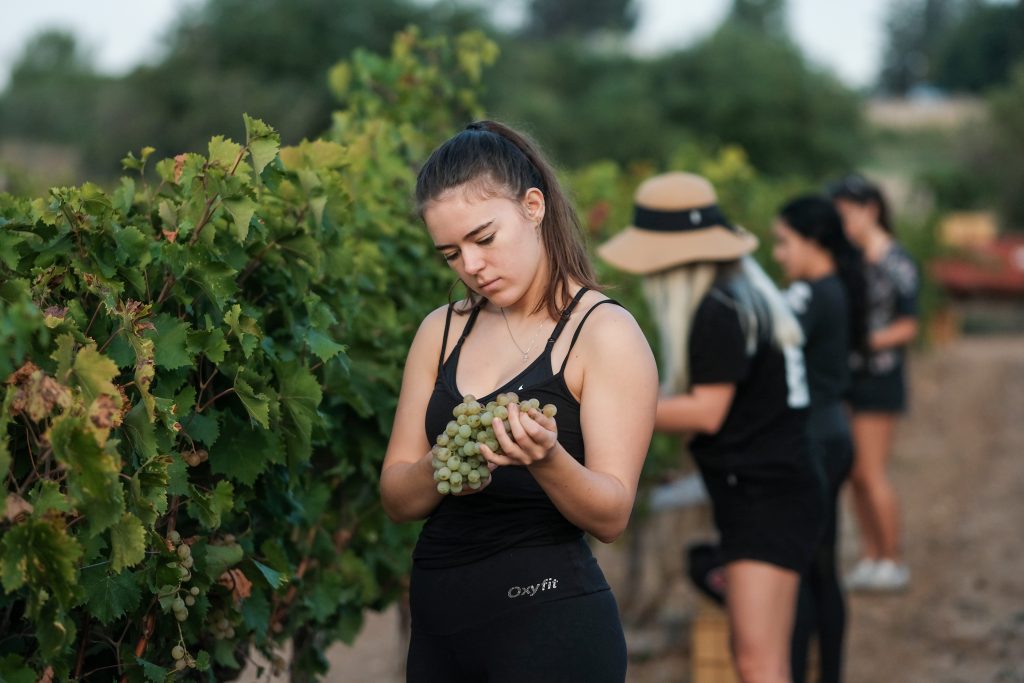
Marina Credendio Eiras is one of them. He worked in importing wine and the alcoholic drinks industry in Brazil, his country of origin, and studied in Italy to become a sommelier. “I had a stable job but I really wanted to study at Wintour,” he explains, and was so determined that he applied for a place three consecutive years. This year he was admitted. ” What I like most is that it is multidisciplinary and in two years – the duration of the course – you can learn about all areas of the wine industry,” he adds.
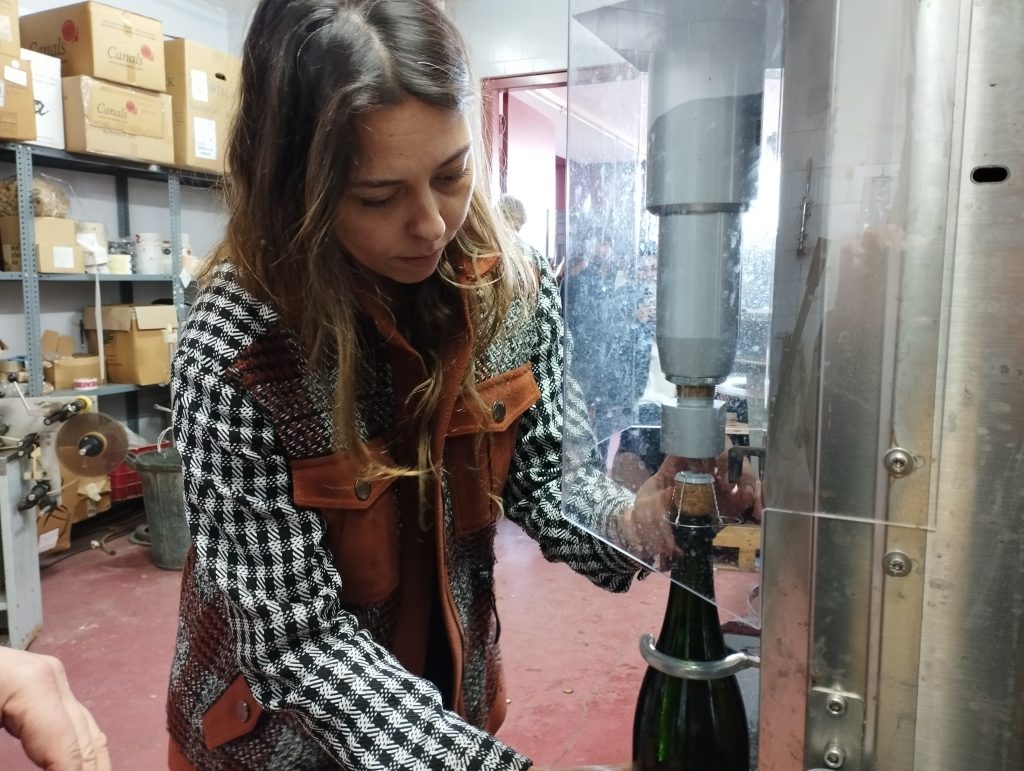
Patti Wilcox, who runs Awestruck Ciders in her native New York, is also a producer at WineMasters.tv., where she interned for her master’s degree, and was awarded the prize of top student of the class of 2020-2022. She explains that what sets this master’s degree apart from other programmes is that the learning is based on practical experience. “In the first semester in Tarragona we did work experience in the vineyard, the cellar and the laboratory of the URV’s Faculty of Oenology. We learned exactly how much work is required to make wine: it takes great physical effort, a careful application of scientific principles and many years of experience and skill. This experiential education continued with field visits to dozens of wineries in the three countries where we trained.” She concludes that “combining these real-life experiences with academic studies in oenology, wine tasting and sustainable tourism helped us become true experts in the field of wine tourism.”
International experience and finding work
The subjects, field trips and internships offered by the Wintour all have three main focuses: wine tourism and marketing, wine production, and the cultural heritage around wine. Hence, the student profiles are also diverse. Although almost a third are oenologists, the rest come from the tourism sector, from business management and administration, and from the field of communication.
International experience is key. For this reason, the master’s degree not only takes place in three wine-producing countries, it also has guest professors specializing in different subjects. This is the case of Richard Marchal, professor and head of the Oenology and Applied Chemistry laboratory at the University of Reims, in the Champagne-Ardennes region, one of the most depopulated regions in France but where the champagne sector employs 13,000 people.
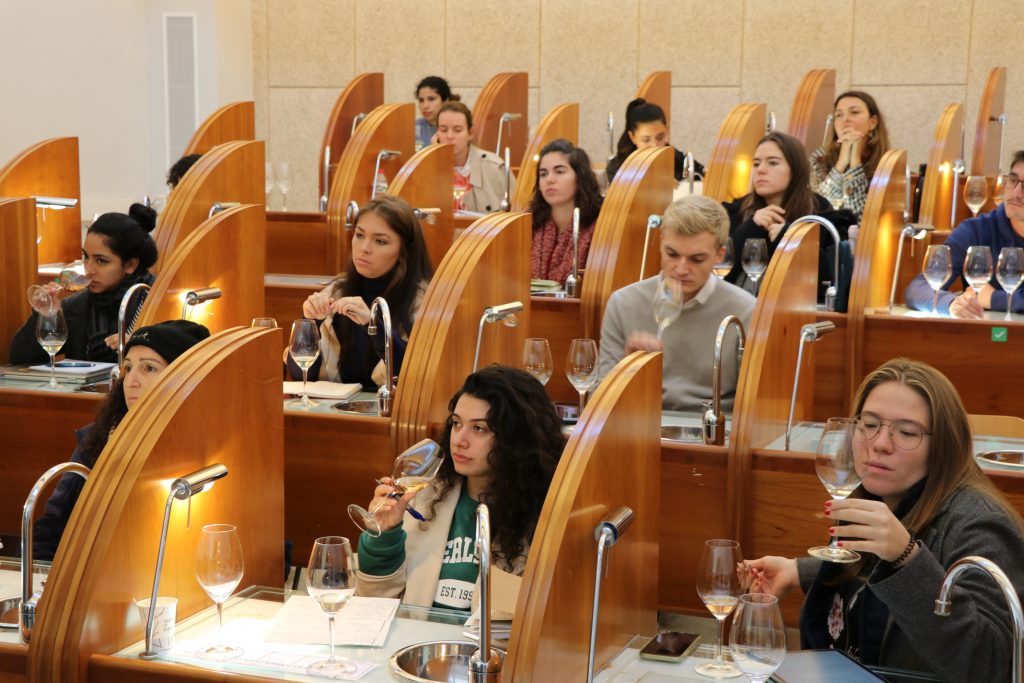
In the tasting room of the Faculty of Oenology of the URV, Marchal together with Joan Miquel Canals, a URV professor who specialises in sparkling wines, held a class on producing sparkling wines and tasted two wines from the Champagne region. They analysed its appearance, nose and palate, all things that the students will need to know in their professional future.
One of the students is Mattia Oberto, a graduate in Oenology from the Langhe wine region, in the Italian Piedmont. He wants to continue and expand the family business and to do that he needs to train in a variety of aspects that allow him to gain competitiveness in the sector. “I would like to combine wine production with my father’s tourism business, a bed & breakfast and restaurant.” This is why field trips are particularly interesting, because they enable students to learn first-hand from the experience of local producers and tourism managers who have combined wine tourism and local development. While in Tarragona they visited wineries in the DO Conca de Barberà, Priorat, Terra Alta, Penedès and Rioja.
The link with the companies in the sector is important: students do their master’s thesis at the place where they do their internships, and often end up being employed there. In fact, finding work does not take long. Gemma Beltran, coordinator of the Wintour master’s degree, explains that most students usually find work less than four months after completing their course. Also “some students come with the idea of working freelance and creating their own company or consultancy while others stay in one of the three cities where they do their master’s degree: Tarragona, Bordeaux or Porto”.
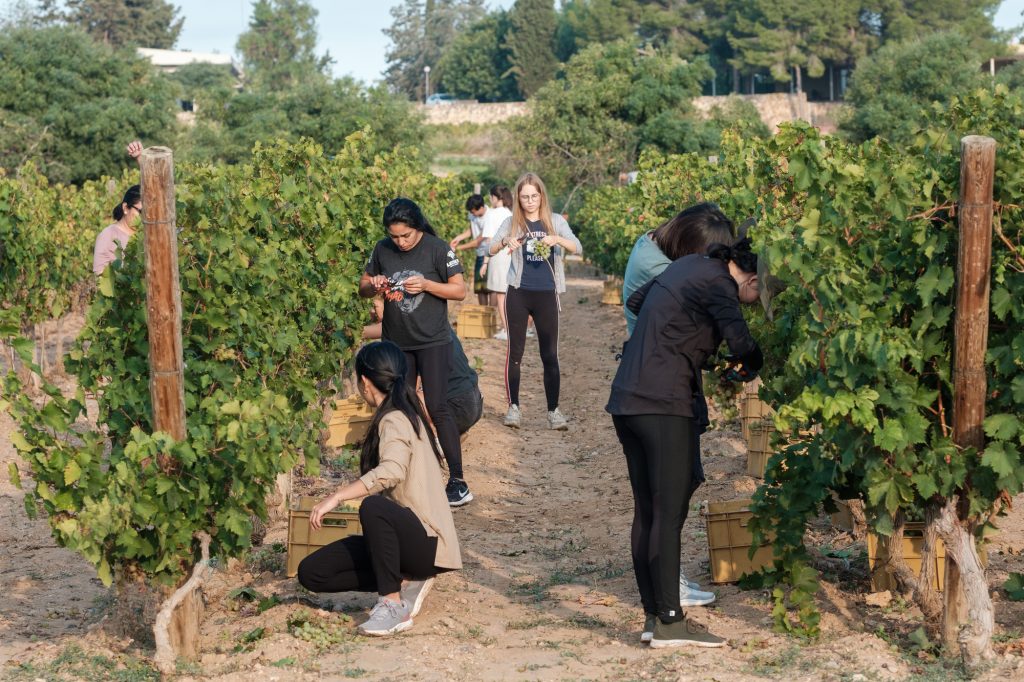
Patti Wilcox, for example, did her internship at WineMasters.tv, a production company in the Netherlands, and she is still working there. She wrote her master’s thesis about this experience and she points out that “I still need many of the lessons I learned during the Wintour program in my work today.” In particular, she needs to plan trips, work as part of a team and communicate with cellars so that she can write scripts and plan audiovisual production.
Other students from all seven editions of the master’s degree have contributed to improving innovation in companies and the wine tourism sector: for example, one student analysed the quality of opportunities for tourism in Priorat and made a proposal for improvement, another made a proposal for how a winery could cope with the economic cycles of the wine industry, and yet another made a proposal for launching wine and oil tourism.
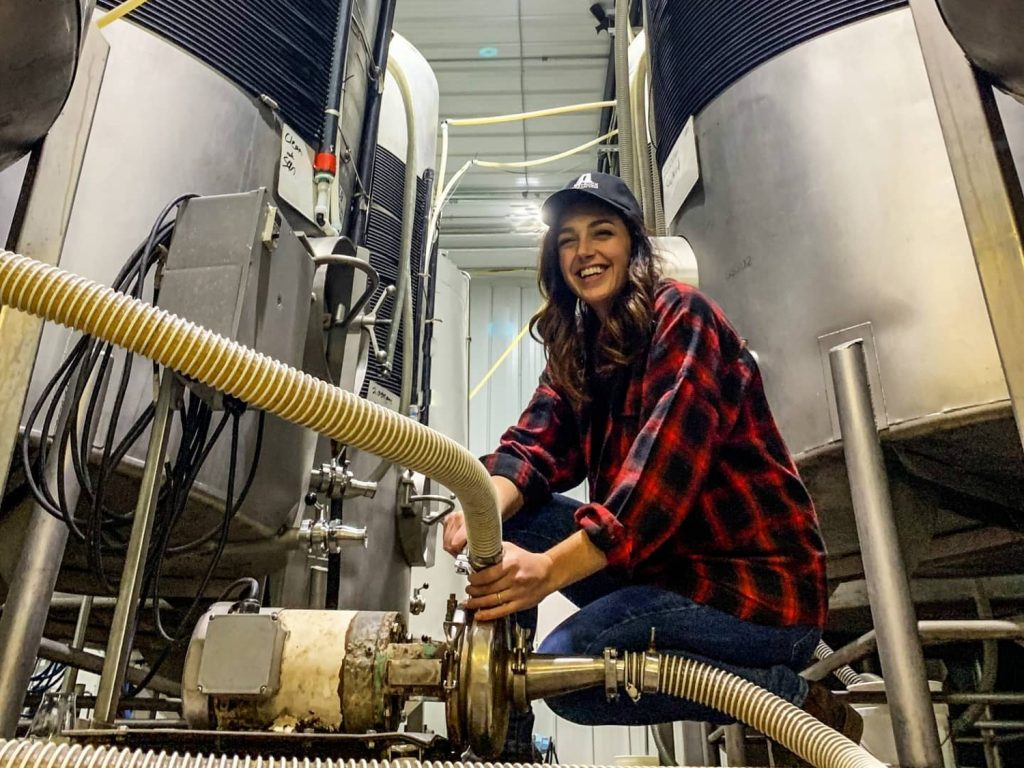
In addition, those students who are already working in a particular business area can try improve it, as Wilcox explains: “At Awestruck Ciders we have reworked the whole concept of the guided tour so that it now gives customers what they really want to see; we have updated our marketing and communication plans to appeal more directly to our target audience, and we now work hand in hand with other local businesses to promote responsible and sustainable drinks tourism in our region.”
Now it is the turn of the students from the seventh edition of the master’s degree, who, by bottling their sparkling wine, put an end to one stage of the master’s degree and move on to other experiences. They will be the next “wine ambassadors”, a brand-new profession combining oenology, tourism and heritage that contributes to the knowledge and development of wine-growing territories.
- Una de les estudiants del Màster Internacional en
- Vi Brut Wintour.
